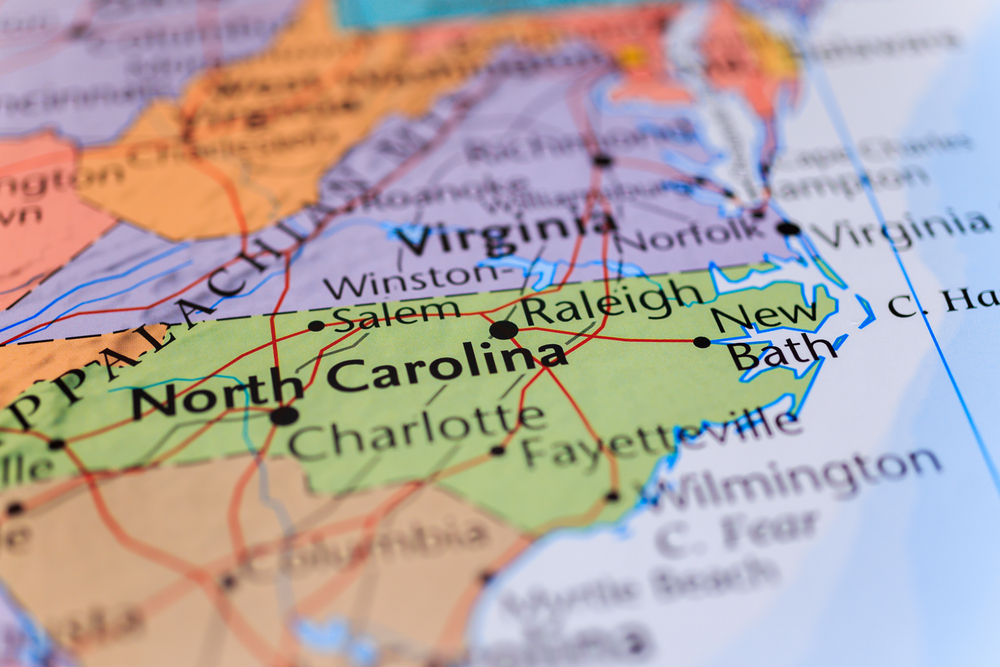Sure, kicking back with cocktails on the weekends seems like an easy way to unwind and socialize. But have you stopped to consider the impact all that alcohol is having on your health, relationships, and productivity?
North Carolina has a problem with excessive alcohol use, especially binge drinking. The stats show 15.8% of adults binge drink at least once a month, downing a median of 5.4 drinks per binge. The top 25% of drinkers consume seven drinks or more per binge and do so 4.6 times a month.
This dangerous behavior leads to an average of 4,452 alcohol-related deaths yearly in our state. These deaths have recently increased by as much as 56%. Nearly 70% of those lost are men, and over 80% are adults over 35. Over half of these deaths result from long-term health issues like alcohol use disorder.
Here are compelling reasons not to drink alcohol that will make you rethink your next trip to the bar. By the end of this list, you’ll be reaching for a glass of water instead.

Common Reasons for Alcohol Abuse in Asheville, North Carolina
Living in a place like Asheville, North Carolina, can be tempting to overindulge. Asheville is nicknamed Beer City USA, with over 50 breweries making it the beer capital of the Southeast. But there are plenty of reasons not to drink alcohol. Here are a few reasons why many drink alcohol in Asheville, North Carolina.
Peer Pressure and Social Anxiety
Feeling pressured into drinking at social events is easy, but you don’t have to give in. Stay true to yourself, and don’t feel obligated to consume alcohol just to fit in. Your real friends will respect your choices.
Health and Safety
Excessive alcohol takes a major toll on your health and safety. It impairs your judgment, coordination, and self-control, leading to risky behavior, violence, car accidents, and health issues like high blood pressure or liver disease. Moderation is key.
Hangovers and Lost Productivity
Those nights of heavy drinking always end in regret. Hangovers lead to wasted days recovering on the couch when you could be out enjoying life or getting things done. Limit yourself to 1-2 drinks, and you’ll feel fresh as a daisy the next morning.
Money Wasted
Drinking too much is an expensive habit. All those bar tabs, cocktail ingredients, and cases of wine add up fast. Cut back on the booze, and you’ll have more money to spend on the important things or to save for your next adventure!

What Are the Warning Signs of Alcohol Abuse?
Some warning signs that your drinking may be problematic include:
- Needing to drink increasingly more to feel the effects of alcohol
- Spending a lot of time drinking, being hungover, or thinking about alcohol
- Giving up or reducing social or work activities because of alcohol
- Continuing to drink even though it causes problems in relationships or health issues
- Getting irritated or restless when unable to drink
- Having to drink immediately upon waking up to avoid withdrawal symptoms
If any of these ring true, it may be time to reevaluate your relationship with alcohol and consider making a change. Your health and well-being are worth it.

What are the Long-Term and Short-Term Effects of Alcohol Abuse?
The short-term effects of alcohol abuse are dangerous enough on their own. Mixing alcohol with medications or illegal drugs can lead to life-threatening health issues, like respiratory failure. Long-term health effects add up over time and include:
Physical Health
Your physical health takes a major hit from excessive alcohol use. Here are just a few of the ways booze can damage your body:
- Liver disease: Your liver breaks down most of the alcohol you drink. Too much over time can lead to liver inflammation, scarring, and disease.
- Heart problems: Heavy drinking strains your heart and cardiovascular system. It can raise blood pressure, weaken the heart muscle, and lead to abnormal heart rhythms.
- Weakened immune system: Alcohol suppresses your immune system, making you more prone to illnesses ranging from the common cold to pneumonia.
- Cancer risk: Alcohol is a known carcinogen that increases the risk of several types of cancer, including breast, mouth, esophagus, and colon cancer. The more you drink, the higher your cancer risk climbs.
In short, too much alcohol can seriously undermine your physical wellness and quality of life. Moderation or avoiding it is the smartest choice for your health and longevity.
Mental Health
Alcohol can negatively impact your mental health and emotional well-being. Drinking exacerbates symptoms of anxiety, depression, and other mood disorders. It impairs your ability to cope with emotional difficulties healthily.
Rather than directly addressing issues, you may turn to alcohol as an escape from problems, creating a cycle of unhealthy behavior. Staying sober provides mental clarity and stability. You’ll easily identify negative thought patterns, regulate your emotions, and practice self-care.
Your mood and outlook will improve, and you’ll build better habits and coping strategies to support your mental health in the long run. Overall, avoiding alcohol can help create an environment where you can thrive.
Social Relationships
Excessive alcohol use can damage your relationships with friends and family. As you drink more, your behavior and personality may change negatively, causing conflict and hurt feelings. You may lose important commitments and become unreliable, straining the patience of people caring about you.
Alcohol can fuel anger, aggression, and violence, creating unsafe situations and lasting pain for loved ones. To maintain healthy connections, limit your alcohol intake and make the time to nurture your relationships.
Focus on open communication, trustworthiness, empathy, and the happiness of your social circle. Valuing the people in your life will lead to much more fulfillment than any drink ever could.
Work and Education
Regular drinking can negatively impact your work and education. The negative impacts start with absenteeism; hangovers lead to missed days, classes, or assignments. There will also be decreased productivity and concentration, making it difficult to complete tasks, learn new skills, or study effectively.
Drinking will also inhibit your ability to consume and retain new information. Your job performance and grades may suffer as a result. Excessive alcohol use puts careers and degrees at risk due to poor outcomes and habits that are hard to break.
Financial Stability
Alcohol is expensive. Those colorful cocktails, craft beers, and bottles of wine add up quickly. Even casual drinking at home can cost $50-100 or more monthly. And let’s not forget the cost of hangovers – pain relievers, greasy takeout, and missed work or social commitments.
Over time, these costs significantly impact your financial stability. Money spent on alcohol could have been put towards important life goals like buying a home, education, travel, or retirement. While an occasional drink likely won’t break the bank, frequent or binge-drinking episodes absolutely will.
Personal Safety
Your judgment and coordination start to suffer when you’ve had a few drinks. That means your safety could be at risk in ways you may not even realize. Alcohol impacts the parts of your brain responsible for decision-making and self-control.
After a couple of cocktails, you may be more likely to engage in risky behaviors you normally wouldn’t, like unsafe sex, drunk driving, or mixing alcohol with medications. Your inhibitions are lowered, and the consequences don’t seem as serious. But the dangers are real.
Emotional Well-being
Alcohol may seem like an easy fix for emotional struggles, but it often worsens the underlying issues. Relying on alcohol to cope with stress, trauma, or negative feelings can mask the real problems and lead to dependence.
Drinking to avoid dealing with difficult emotions establishes a cycle of turning to alcohol for comfort and regulation. This cycle is hard to break and prevents you from learning healthy coping strategies. Facing emotions head-on, though uncomfortable, is the only way to truly overcome them.
Family Dynamics
Family dynamics can be seriously impacted by alcohol abuse. Your drinking may cause conflicts with loved ones, damage relationships, and create an unstable environment.
Children often mimic their parents’ behaviors, for better or worse. Heavy drinking sets a poor example and teaches kids unhealthy habits and coping mechanisms. It also interferes with parenting abilities, as discipline and guidance are difficult when intoxicated. This can have lasting impacts on a child’s well-being and development.
Community Impact
Your community as a whole suffers when excessive alcohol consumption is common. Hospital visits and emergency room admissions for alcohol-related issues strain healthcare resources. Everything from drunk driving accidents to alcohol poisoning and overdoses.
Excessive drinking contributes to social problems like domestic violence, child abuse, homelessness, and poverty which damage the fabric of communities. It also often leads to risky behaviors that threaten public safety.
Contact Asheville Recovery Center To Get Started on Your Healing Journey
Contacting Asheville Recovery Center is one of the best ways to start your journey to sobriety. Our caring staff can walk you through the process and find a program tailored to your needs.
Call us at (828) 518-6996 to speak with our admissions team. Our caring staff are available 24 hours a day, seven days a week, to provide information and support. We can walk you through the admissions process, discuss insurance and payment options, and address any concerns about beginning treatment.
Don’t delay – reach out right away. The sooner you make the call, the sooner you can start your journey to sobriety. Our specialists understand how difficult this first step can be and will handle your call compassionately. You don’t have to go through this alone.






